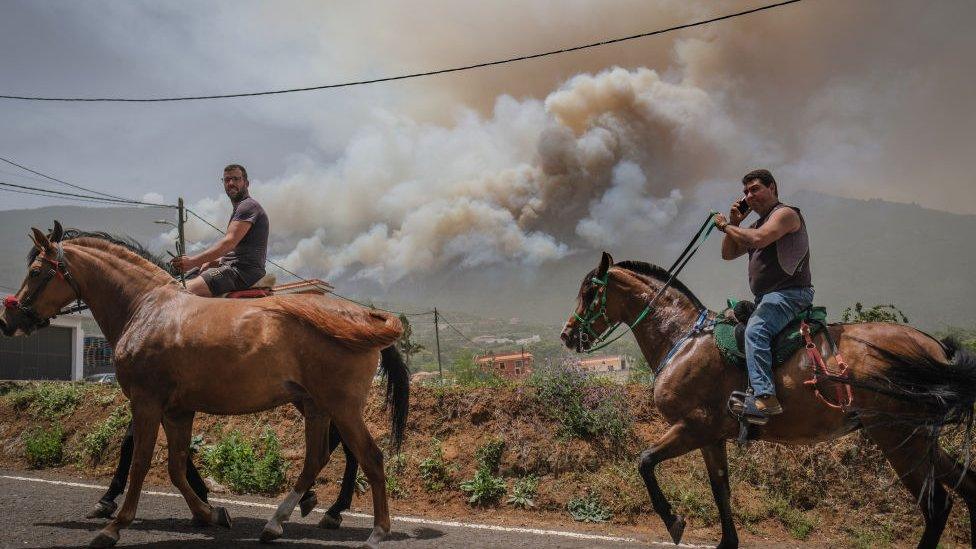Wildfires: Why they start and how they can be stopped
- Published
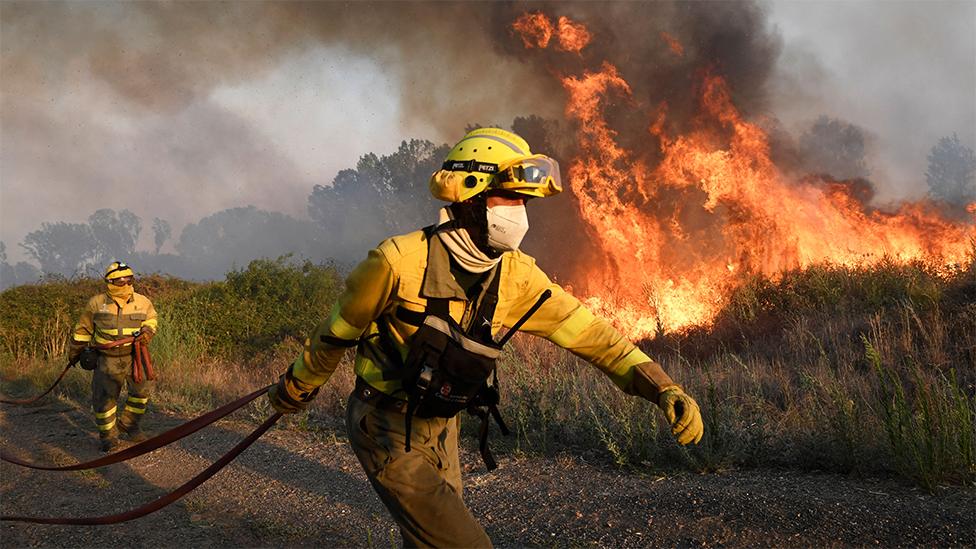
Firefighters battle fires in Spain
The UK, Greece, Spain, France and the US. Just some of the places around the world battling wildfires in recent days and weeks.
Firefighters have been grappling with flames that can claim lives and destroy homes.
Thousands are trying to evacuate and reach safety.
Over the years, wildfires have become more frequent, widespread and intense, and 2022 has seen some countries - including the UK - record their highest temperatures in decades.
Experts believe this is due to the long-term impact of climate change.
How do wildfires start?
A fire needs three things: fuel, oxygen and heat. Firefighters often talk about the fire triangle when they're trying to put out a blaze.
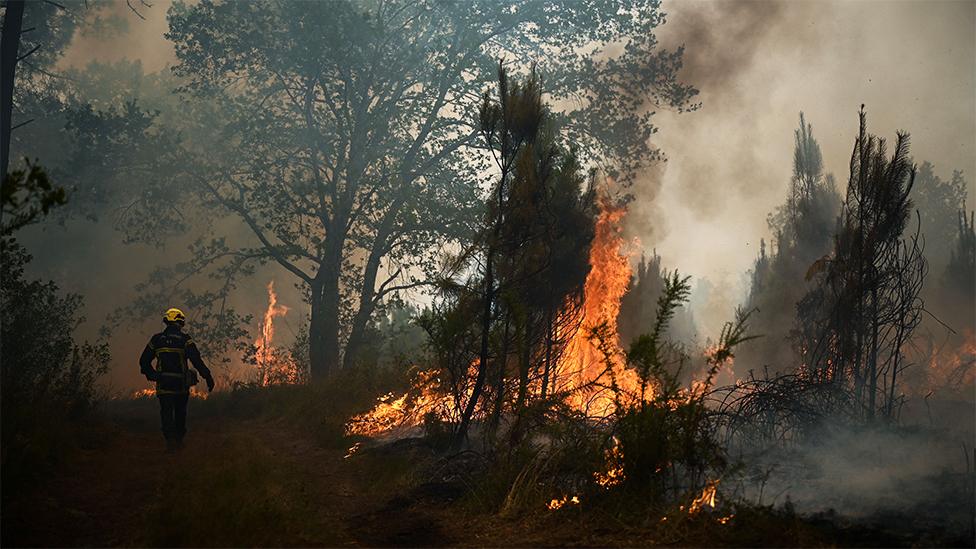
Flames in France ravage the forest
On a hot summer's day when drought conditions peak, something as small as a spark from a train wheel can ignite a raging wildfire. Sometimes, fires occur naturally, ignited by heat from the sun or a lightning strike.
However, most wildfires are caused by human carelessness. Arson, campfires, discarding lit cigarettes, not burning debris properly, and playing with matches or fireworks are often blamed.
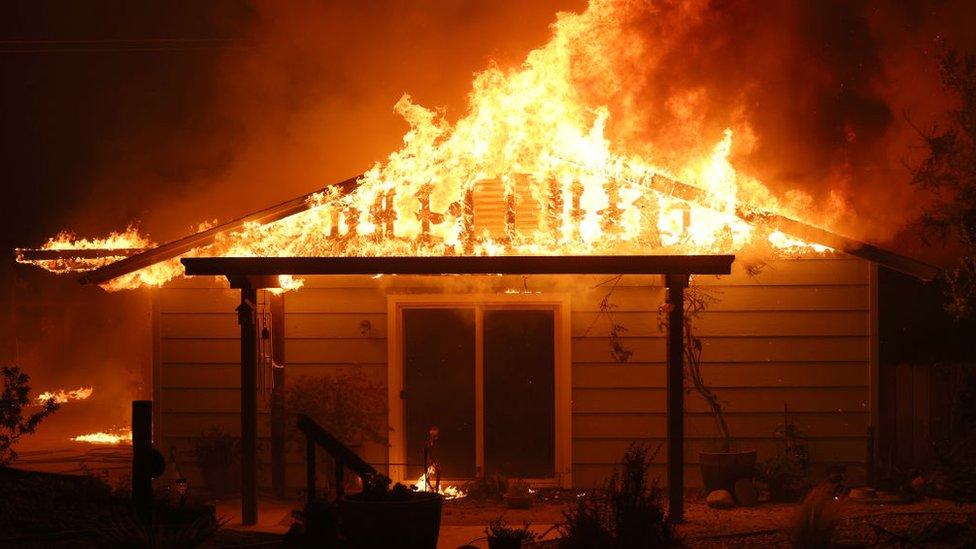
Devastating fires have blazed in California
Why can they spread so quickly?
Once it's started, a wildfire can spread due to the wind, being on a slope or because of fuel.
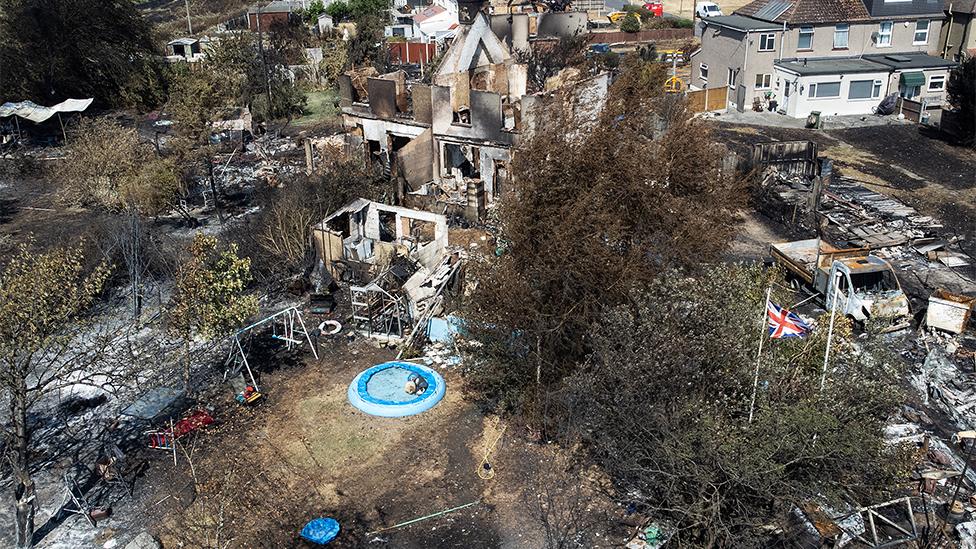
A view of the devastation of fires in the UK
"Where a slope is going upwards at a 10% gradient that would double the speed of the fire, if it's 20% it would quadruple the speed of the fire," Rob Gazzard, technical advisor to the Forestry Commission tells Newsbeat.
"That's because it's pre-heating the fuel above it. So if a fire is going up a mountain it will go very fast."
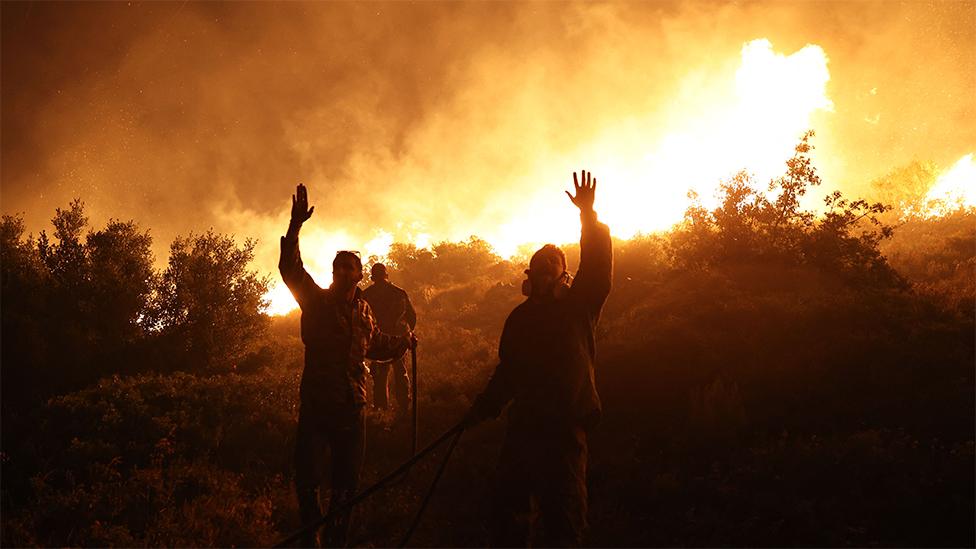
Firefighters gestures as they work to extinguish a wild fire
Fuel includes everything from trees, underbrush and dry grassy fields to homes. The more fuel there is, the more violently the fire will burn.
Plus if it's really dry - like it has been in most of those countries - the fire it creates is much more difficult to control.
What's the weather got it do with it?
Quite a lot, actually.
Low rainfall causing a drought, searing hot temperatures and wind all make the perfect recipe for a wildfire.
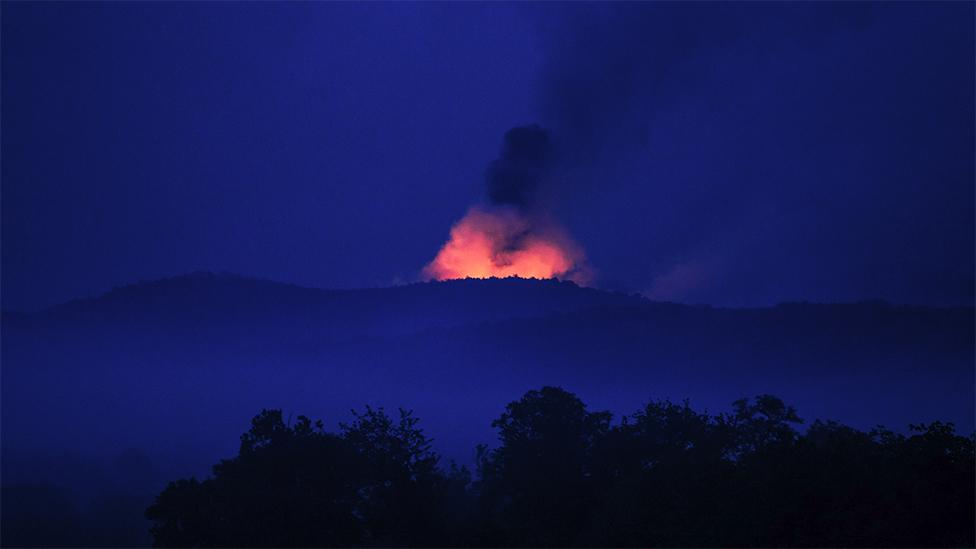
A wildfire in Slovenia burned for days
Remember the heat in the fire triangle? The sticks, trees and underbrush on the ground get hot from the sun, then very dry.
As it gets even hotter those "fuels" can ignite and that's why wildfires tend to rage in the afternoon, when temperatures are at their highest.
How to beat the fire
It's all about removing the fuel because you can't control the weather.
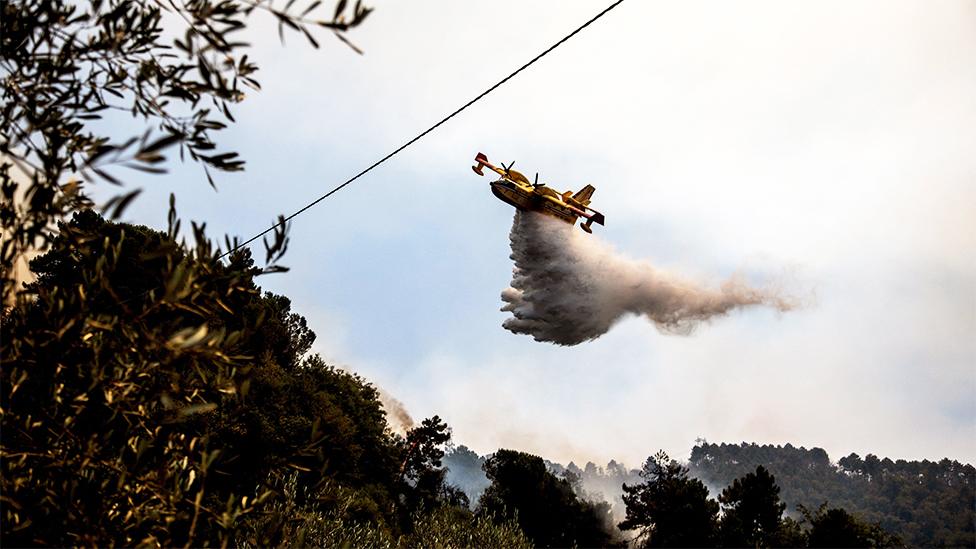
Aircraft dropped water on wildfires in Italy
Fire experts use wildfire prediction tools which look at the wind speeds, slopes, the fire's direction and fuel to work out how to put out the blaze.
"You go hours or days ahead of the fire and remove anything that can fuel it using bulldozers, tree harvesters, hand tools," says Rob.
"You then create a fuel break [basically a big trench] around the whole of the fire. Then you can win and suppress it really effectively."
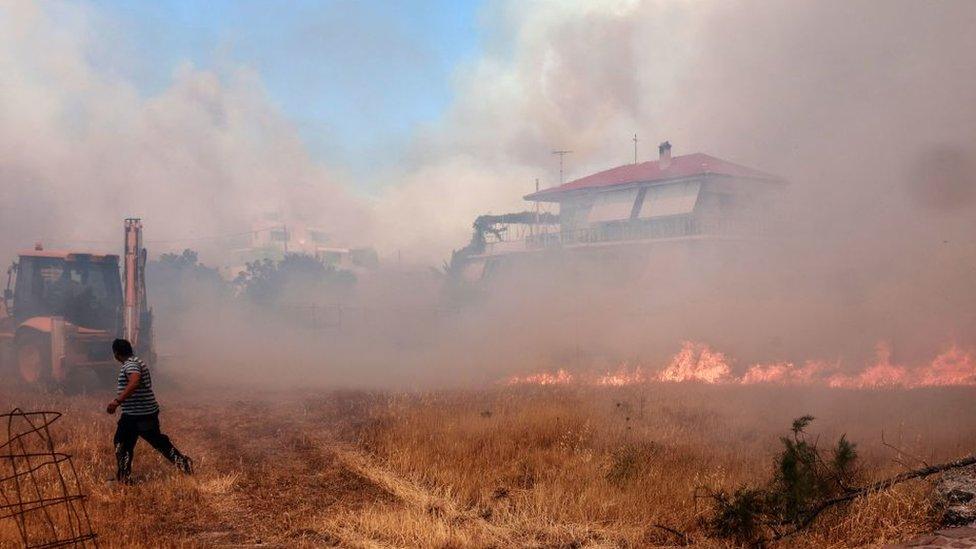
People had to flee wildfires that raged in Greece
It can happen in the UK too
We tend to get them in England and Wales, as well as parts of Northern Ireland and Scotland near urban and rural areas. Fires here are generally smaller than those around the world because our temperatures aren't as extreme as Australia, New Zealand, South Africa, Canada or United States.
But they can still be damaging and hard to tackle.
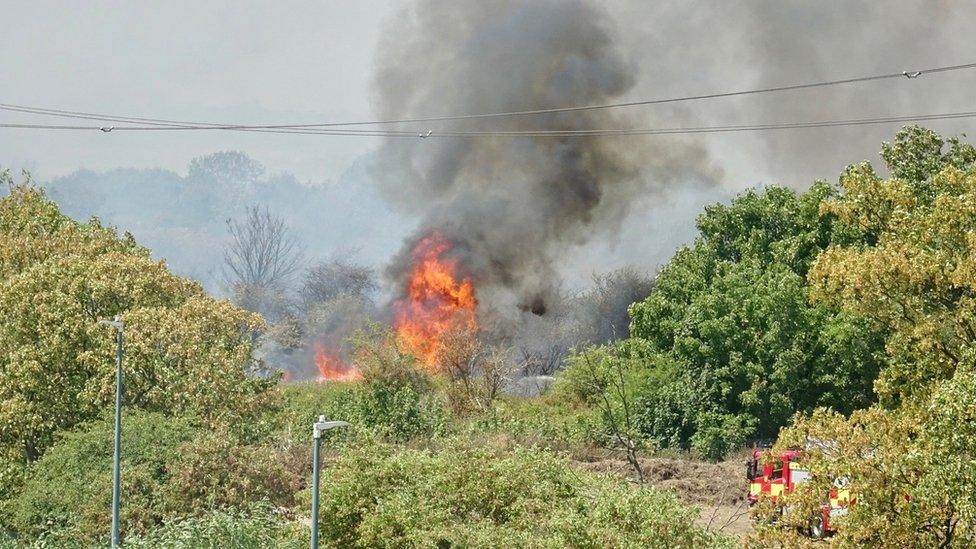
A wildfire recently broke out on Dartford Marshes
"According to the government's climate change risk assessment, wildfires are predicted to increase in the United Kingdom by 30-50% by 2080," says Rob.
According to a major report by the UN, the effects of climate change are even more severe than previously thought.
The report warned that increasingly severe weather patterns that could fuel wildfires, and heatwaves and droughts will become more common if action is not taken soon.
In the UK, there is even a practice guide on preventing wildfires.
This involves choosing to plant less flammable trees in places where they're less likely to set on fire and harvesting them regularly.
A version of this article was previously published in 2021.


Follow Newsbeat on Instagram, external, Facebook, external, Twitter, external and YouTube, external.
Listen to Newsbeat live at 12:45 and 17:45 weekdays - or listen back here.
- Published20 July 2022
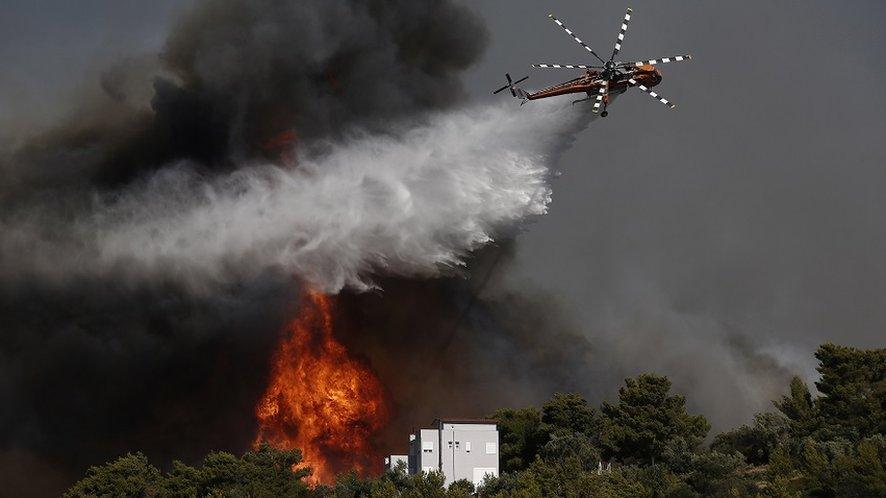
- Published2 August 2021
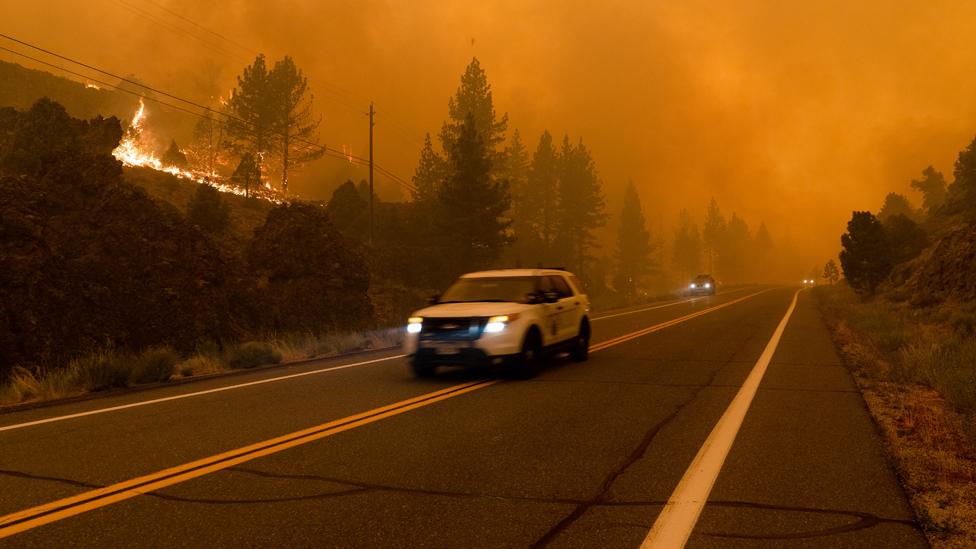
- Published21 July 2022
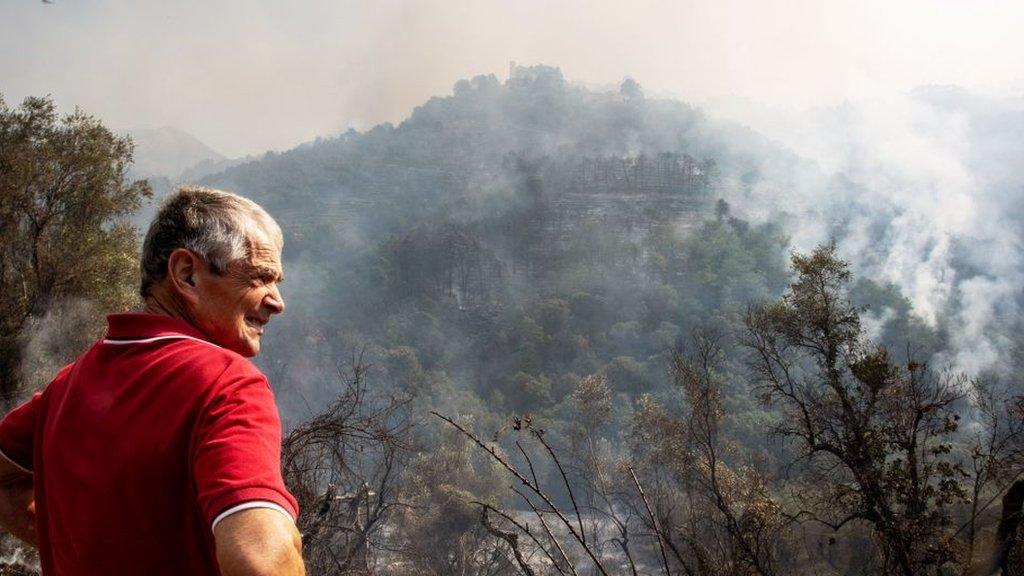
- Published24 July 2022
